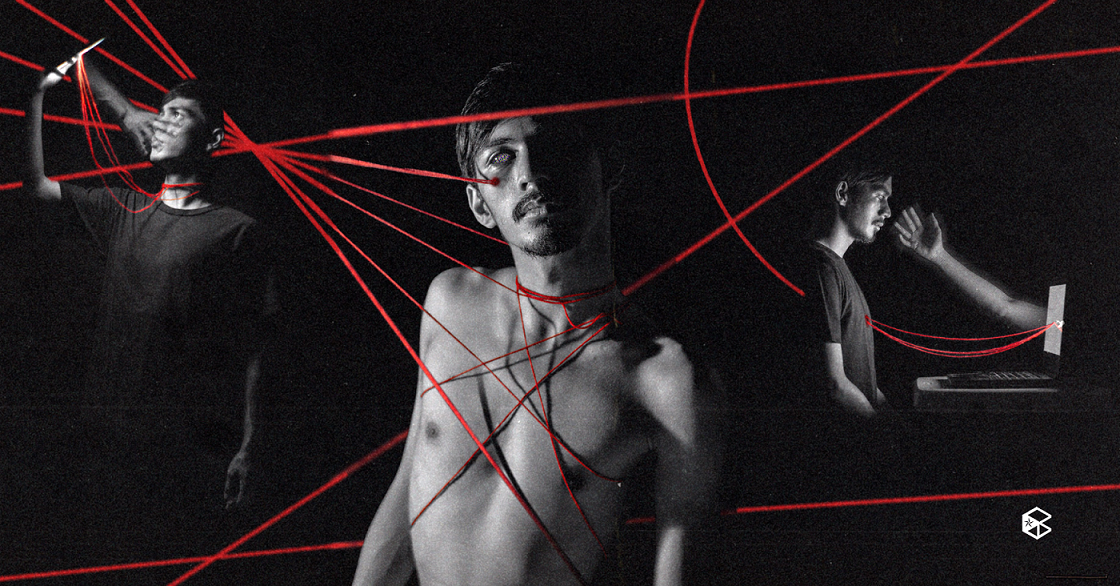Parasocial relationships can catch us in moments and places we don’t expect them to. We feel attached and promised connection to someone far away from our reach. At what point do we become deeply obsessed with fantasy while being able to recognize the potential–and sometimes necessary–comfort it can bring?
Ding! A notification: news about your favorite celebrity. Quick, what’s it about? Partner reveal? Someone to cancel? And is that a new shirt they’ve never worn before? Regardless of where that screen tap would lead you, asking yourself questions like these could already be a sign that you’ve been charmed into what is called a “parasocial relationship.”
Though it could be traced back to 1956 from a journal by Donald Horton and R. Richard Wohl, the idea of a parasocial interaction is defined as an emulation of an actual relationship through a form of media–television, movies, and the like. As real as it may seem, there exists an unmoving barrier that separates one from the person they adore. Despite how intimate one may feel about this relationship, only one person gets hurt when they stare deeply enough into the mirror to finally recognize its illusion.
A gap in the illusion
“Parasocial relationships [are] an effect of media consumption,” Mr. Dave de Guzman Centeno, a marketing professor from the University of the Philippines-Diliman, stated in an interview with The Benildean. These are one-sided, pseudo-intimate relationships between the audience and a media persona or fictional character. “We see audiences’ cognitive, emotional, and even behavioral responses to the persona as similar to our responses to ‘real-life’ people that we encounter and interact with every day,” he elaborated. According to Mr. Centeno’s research entitled “Celebrities’ Parasocial Interaction and Relationships: Predictor of Voting Preference towards Endorsed Political Candidates,” people who experience this phenomenon feel a sense of “illusionary intimacy” with these characters or personas, despite not knowing them personally nor even meeting them outside of the content they consume.
“[The word parasocial] means it’s not really social. [...] Only the audience perceives [the relationship], but [there isn’t] any social interaction…” Mr. Centeno furthermore expounded that the level of intimacy rarely defines this kind of connection. “A parasocial relationship does not mean you have an intimate [feeling with the person]. The way you interact with “real life” people, [...] kahit strangers, or classmates, or friends, if you see that kind of feeling [with] any character on TV, then you already are in a parasocial relationship.”
In an interview with The Benildean, Ms. Jesser Eullo, an Academic Coordinator at De La Salle University-Dasmariñas, compared that this type of relationship used to be more one-sided in media like books and movies with the lack of direct interaction from the audience such as reactions and comments. But the accessibility of media personas in the present has made it easier to develop and foster parasocial relationships.
“One common thing I've observed with people who get too attached with their parasocial relationships is that they sometimes have a hard time to detach or sometimes recognize that this is just a one-sided relationship,“ Ms. Eullo expressed. While this seems like an issue that goes deep into psychology, it doesn’t take an academic to recognize the sharply-edged threats of a parasocial relationship.
“‘Yung obsessive fan culture? That’s the time [when] it’s really too much. In a way, hindi na siya healthy, na you really think they know you.” To her, some obsessive fans even develop toxic tendencies toward celebrities, feeling a sense of entitlement to new content or the publicization of their personal lives. “We have, of course, personal stalking na, but that's the extreme end of the spectrum already.”
Separating reality from its reflection
Mr. Centeno shared how “parasocial relationships are strong for those who are lonely.” Especially during the pandemic, when many people are on the lookout for a form of escapism or a coping mechanism within the media they consume. “[The ability to detach yourself from the relationship] is a matter of personality, motivation, and sometimes demographic,” which further emphasizes how strong the influence of these relationships can be.
Despite what is generally known about parasocial relationships, it isn’t necessarily a bad thing to have one. “Iba-iba ‘yung effect [ng parasocial relationships] sa tao. There are some [who have parasocial relationships], but it affects the person positively,” Ms. Eullo added.
According to her, if the parasocial relationship just includes the usual admiration and attachment, it isn’t necessarily negative. “Sa akin kasi para siyang, relief, distraction, entertainment–para siyang stress reliever.” She even jokingly adds how she and a co-worker would call this distraction as ‘vitamins’ to keep them strong after stressful days at work.
However, as celebrities enter political pools and release vigorous opinions online, we’re tasked to manage our parasociality wisely. Where do we start? Ms. Eullo shared a simple answer: “Know your boundaries [...] Even in your normal relationships, you have your normal boundaries, [it’s just the same thing].”
As celebrities strip themselves of jewels and shine, we finally see them for who they always were; artists, creatives, and most of all, just people we admire. It’s up to us to make sense of our admiration and control it so that it doesn’t bring us to the deep end of parasociality.
This article is also published in The Benildean Volume 8 Issue No. 2: Reacted.


